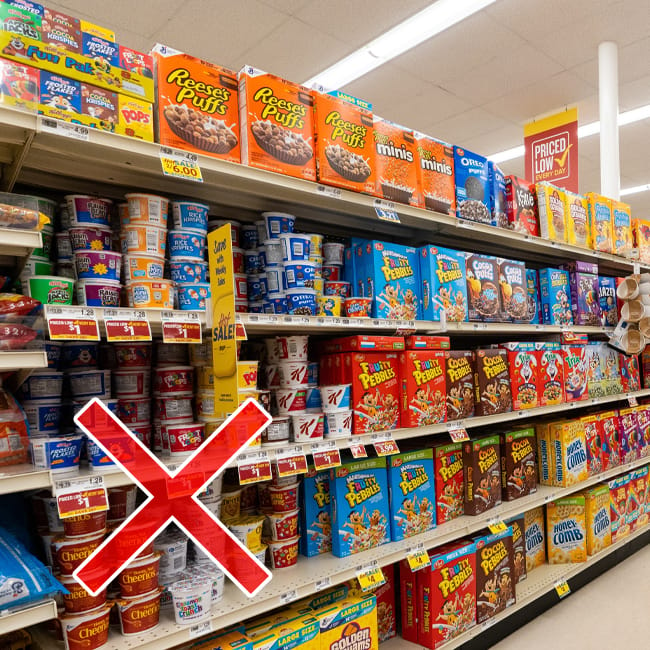This is an archived article and the information in the story may be outdated. Please check the time stamp on the story to see when it was updated last.
It’s well known that creating a calorie deficit is the only way that you will be able to achieve healthy weight loss, and whether that means cutting back on your food intake or integrating more exercise into your routine, it’s essential to be burning more calories than you’re consuming to see a difference on the scale. However, one common misconception is that you need to have a major calorie deficit in order to see results, and you’ll be able to achieve your goals more quickly the less you eat.
While this may technically allow you to lose weight at a faster pace, there are a number of downsides to over-restricting your calories that range from uncomfortable to downright dangerous for your body. If you’ve been working towards weight loss and dramatically depriving yourself of calories, it’s worth reevaluating this plan if you want to maintain your health in the long term and achieve results that you’ll actually be able to sustain.


Although it’s true that you need to create a calorie deficit to lose weight, calories are also an essential energy source for your body that act as fuel, helping you to feel strong and awake throughout the day. When you cut back on your food intake past the point of a healthy deficit, the first thing that is likely to be affected is your energy levels, and you’re apt to feel sluggish and weak as your body craves the fuel it needs to survive.
However, another likely side effect of a severe calorie reduction is that your metabolism may actually slow down. “When resources become reduced for too long, metabolism and thyroid function are downregulated in an effort to conserve energy,” warns Leann Poston M.D., M.B.A., M.Ed. “The body will start adapting to the number of calories it's receiving, therefore it will slow down and hinder weight loss if done too severely or for too long.”
Maintaining a quick metabolism is essential for seeing weight loss results as it dictates how effectively your body can burn through food as fuel. When your metabolism slows down, you’re more likely to store food as fat instead, burning less calories and consequently putting on weight. “Most people notice they lose up to 5% of their body weight using calorie restriction and then they hit a plateau,” explains Poston.
“A better approach is to look at what you are eating and aim for a well-balanced diet that incorporates fruits and vegetables, lean proteins and healthy sources of fat,” she concludes. A healthy calorie deficit should fall between 250-500 calories less than you’re burning each day which will ultimately result in losing about 1 lb a week and is considered safe and sustainable. Ideally you should never fall below 1,200 calories a day if you are fueling your body properly.

Tracking calories does work for some people, but if you find yourself getting fixated on the numbers it may be worth focusing on putting together nutrient dense meals which are composed of healthy fats, carbs, and protein in order to fuel the body instead.
Taking the focus off calories will still net weight loss if you also limit your sugar intake and make sure you’re consuming whole foods which can provide your body with the necessary energy to thrive throughout your day. A large deficit may allow you to reach your goals more quickly, but your metabolism, thyroid, and energy levels will ultimately suffer for it and you will more than likely gain the weight back when you begin eating a healthy amount again.
If you’re integrating more exercise into your daily routine, it’s important to be cognizant of how this can affect your body as well, and you may find your appetite has increased. In this case, you should be eating more food in order to fuel muscle growth and boost your metabolism. Calories are a stepping stone to weight loss, but they are also a vital form of energy that your body relies on to function properly each day.
Creating a reasonable deficit of between 250-500 calories should allow you to gradually make the changes you’re looking for without shocking your system or compromising your health, ultimately allowing you to keep the weight off after making small changes to your diet that will be easy to maintain. Whether it be cutting out sugar from your coffee or eating more vegetables instead of processed foods throughout the day, your body will respond well to making the healthy choice when it comes to weight loss, instead of leaning into the quick fix.


























